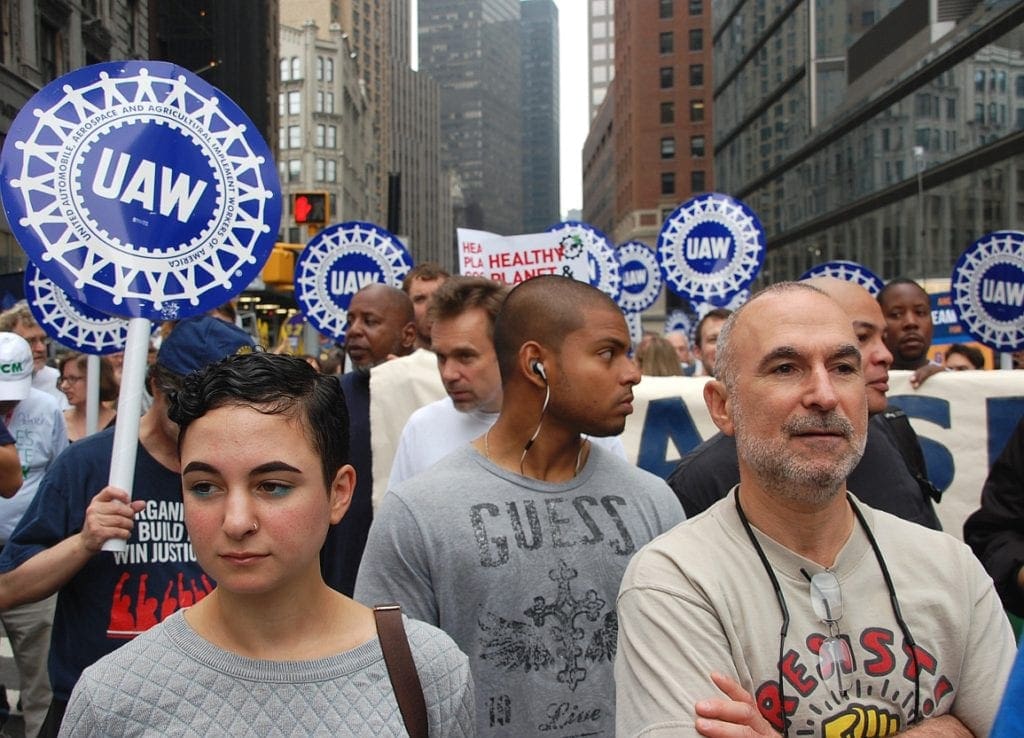A few weeks after the United Auto Workers union reached a deal with General Motors, the union’s president, Gary Jones, ended up resigning, on November 20, 2019.

Jones’ stewardship of the UAW had gained notoriety for corruption and trouble was brewing in UAW-land throughout 2019. Last August, the FBI raided the president’s home during an ongoing investigation into the union’s corruption scandal. The UAW was under the microscope during the prolonged strike with General Motors, which ended on October 25, 2019 — marking the longest strike in America in the last 50 years.
ZeroHedge reminded its readers about the ongoing corruption with the UAW. On November 20, 2019, General Motors sued Fiat Chrysler, alleging that the car manufacturer tried to bribe high-ranking UAW officials as a means of getting more favorable terms during labor negotiations.
On the day the lawsuit was filed, the UAW took initial steps to remove Jones and kick him out of the union. Jones abruptly resigned that same day. Jones was already under tremendous pressure since the start of November due to scandals involving the misuse of union funds and bribery. As of now, ten people have pled guilty to federal criminal charges concerning the aforementioned scandal. Most of these individuals are former union officials.
Jones is not facing criminal charges. Under normal circumstances, he would have gone through a union trial, which would have taken the charges against him into consideration. The union boss was not exactly hurting for cash. According to ZeroHedge, his total annual compensation stood at $260,243.
In some of the federal charges against Jones, there are accusations of Fiat Chrysler executives bribing union officials. General Motors sustains that Fiat undermined collective bargaining agreements between GM and the UAW during 2009, 2011, and 2015, through its bribery of union officials.
The concept of labor unionization is not bad in of itself. It’s simply a group of people banding together to form a bargaining unit in the workplace — freedom of association if you will. However, things get prickly when these types of organizations use coercion against employers and other workers who refuse to unionize. Even worse, when federal bureaucracies like the National Labor Relations Board get into the mix, these entities can then receive political privileges that shield them from accountability.
The UAW serves a purpose in bringing accountability to the workplace; however, it has become drunk with power in recent decades thanks to its ongoing politicization. The Jones saga illustrates the corrosive nature of unionization ever since the federal government took a more proactive role in the matter during the New Deal. Going forward, organizations like the UAW should consider distancing themselves from the federal government while exploring non-state solutions to negotiate with employers like GM. History has proven time and time again that corruption and state interference go hand-in-hand.

























